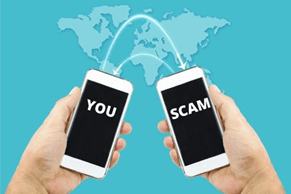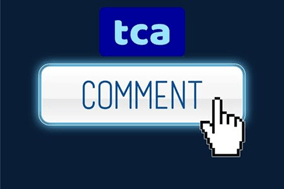Whether it’s the call centre in India telling you they are from Microsoft and that there is a problem with your computer or the supposed call from the Inland Revenue saying that you are due a tax rebate, all these contacts are fake. There is a catalogue of such fraud and Action Fraud have a list which they call their A to Z of fraud, you can view it here.
The majority of fraud comes under the Authorised Push Payment category or APP for short; we will look at this in greater detail later. One thing is certain and that is fraud begins with the victim saying yes, in other words it starts in your home with you saying yes. We would be the first to agree that fraudsters are masters of their art and also extremely convincing but whichever way you look at it the people involved are trained criminals.
At TCA our articles often use the words “scam” “scammer” “fraud” “fraudster” but over the years the meaning of these words seems to have softened, the reality, as we stated above, is that all those working, in what is now a multi billion pound industry are CRIMINALS, this is the correct and only word to describe them.

Authorised Push Payment
A recent article in the Guardian stated that more than £1.3bn was stolen by con artists last year, figures reveal, with authorised push payment fraud (APP), where victims are tricked into making a payment, rising sharply as pandemic restrictions eased.
The amount lost to APP fraud hit £583.2m in 2021, a 39% increase compared with 2020, according to the research from the banking industry organisation UK Finance. It found there were 195,996 incidents of APP fraud in the UK last year, up 27% on the previous year, as people worked more from home, spent longer online and did more internet shopping which made victims more susceptible to such scams.
Nearly 40% of APP fraud losses were due to impersonation scams, where criminals pretend to be from a trusted contact to trick victims into moving their money, with an estimated £214.8m stolen using this method in total.

APP and timeshare fraud
This is a two part article and in part 2 we will look at the current fraud scams surrounding timeshare which may hopefully put you on your guard. The one common thread is that there will be a request to pay money. In order to pay you will either need to use a card or make a bank transfer, both of which require your authority, hence the term Authorised Payment, we are unsure where Push fits in but in any case you authorise payment.
Banks and credit card companies are certainly tightening up on payments of large sums, especially to foreign accounts; you may get a call from your provider flagging up a potential fraud. If you then choose to authorise the payment then you have removed any layer of protection being offered. Once again, successful fraud begins with you.

Watch the pennies turn into pounds
Because of the banks and card companies tightening up on transactions this has forced the fraud to take a different direction. Gone are the days that scam artists ask for ridiculously high sums running into multiple thousands, this certainly will raise a red flag with your bank or card company. The current trend is to ask for modest sums in the hundreds not thousands. Make no mistake, this is just as dangerous as previous methods. You’ve won a court case and are due an award of £15,000 but you need to pay £350 court procurator fees, you pay, £350 to get £15,000, great deal. Later a further call, you need to pay another £350 for translation fees, still not bad. Now it’s confirmed that the award has been made but Spanish tax at 5% is required, £750, still not bad, finally an international transfer fee of 2%, £300 to be paid, then the transfer will be forthcoming. £1,750 later the scammers disappear along with the so called £15,000 that never existed in the first place.
Because these amounts are much smaller there is a good chance they will fly under the radar of the banks or card companies, at least this is what the scammers are “banking” on.

TCA comment
Some may say we are being harsh by placing some of the blame on you, the current or past timeshare owner and the computer owner or tax payer but there is no substitute for pausing, taking time to reflect and investigating. After all these years we would have thought that the Indian call centres peddling Microsoft help would have been long gone but only this morning the author of this article received three calls from “Microsoft”, very odd as this article is being composed on an Apple Mac.
The continual contact alone tells us that the scam is still working; people are still engaging the so called help from Microsoft technical support, and paying dearly for the privilege. A crusader to close down these boiler room scams is a chap called Jim Browning. Jim has a YouTube channel showing how he carries out his work, his introduction to the site states:
“I hate scammers and this channel exposes scams, explains how these scams work and has led to some scammers being arrested.”
A sentiment certainly shared by all at TCA. After all his exposure and sterling work, the Indian call centres still thrive, however they wouldn’t if on receipt of every call the answer was “not interested”
Timeshare scams are the same, just say no, take time, investigate, reflect and of course if you are contacted by one of the few good guys out there they will still be there tomorrow for you to engage their services in a forthright honest way.
Part 2 of this article will be published in a few days and will look at the current timeshare scams, how to spot them and more importantly how to avoid falling victim.
For more information regarding this article or assistance in any other timeshare related issues please contact the TCA on 01908 881058 or email: info@TimeshareConsumerAssociation.org.uk
